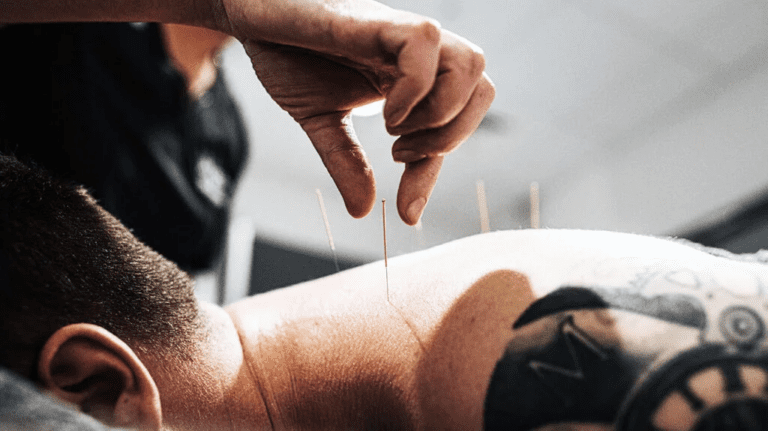
Acupuncture is a traditional Chinese medicinal technique that uses delicate needles to be inserted into specific points on the body in order to treat diseases and reduce pain. In this article, we will look at one important factor of how to optimize acupuncture’s therapeutic benefits: session frequency. The number of times you go for acupuncture treatment significantly affects its effectiveness as a therapy, giving it sustainability and long-term health benefits.
How often should you get acupuncture for optimal results?
Acupuncture frequency varies based on individual needs and conditions. Typically, one to two sessions per week are recommended initially.
Typically, acupuncture sessions are initiated once or twice a week for optimal results, especially when trying to fix acute symptoms or recent injuries. This initial frequency takes the edge off symptoms a little and lays some groundwork for treatment. If the patient feels relief and their condition is stabilized, it slows to once or twice a month for maintenance, to continue sustaining benefits and preventing the return of symptoms. The detailed schedule is tailored to each patient’s health goals and response to treatment, so every approach is highly personalized to maximize therapeutic outcomes and long-term wellness.
What factors determine the frequency of acupuncture sessions?
The factors that determine the frequency of acupuncture sessions are severity of symptoms, chronicity of the condition, and patient response.
It is therefore important to think that how frequently an acupuncture session would be done depends on the nature and severity of symptoms, chronicity of a given condition, and general health and lifestyle. Acute conditions, such as flare-ups or recent injuries, often require treatment more frequently in order to have quick alleviation of the symptoms. In contrast, more chronic conditions—for example, arthritis or persistent stress—will require treatment over a longer time period to manage the symptoms and health. Moreover, it is also modulated by lifestyle factors, level of stress, and individual health goals that help tailor treatment to the needs of the patient and maximize its benefits from acupuncture.
Is it safe to have acupuncture frequently?
Yes, it is safe to have acupuncture frequently when administered by a licensed practitioner.
Acupuncture is a low-risk technique that involves inserting fine sterilized needles into particular points on the body. Consequently, regular sessions help maintain energetic flow, hence aiding homeostatic regulation. This allows constant feedback from patients, thus making it possible for continuous assessment and adjustment based on such input, thereby optimizing outcomes. The practitioner will, therefore, ensure each session does not over-stimulate, causing them to monitor sessions one after another, keeping track of the number of times it is done in order to maintain safety yet effectiveness since he has to evaluate his/her own performance during practice by counting up how many times she/he performs something throughout this exercise.

How long should you wait between acupuncture sessions?
The ideal wait time between acupuncture sessions is usually 3-7 days.
The body gets this time for it to integrate the effects of treatment and regulate energy. Over this period, the body will still be affected by the curative alterations that started with needle insertion resulting in a wider range of overall advantages. In case there are acute symptoms or conditions that need immediate attention, shorter intervals may be recommended initially. The practitioner might consider extending the time between treatments as symptoms improve in order to stabilize and prevent relapses.
Can acupuncture be performed too frequently?
While acupuncture is generally safe, performing it too frequently may lead to overstimulation.
Failure to allow for sufficient time between sessions can lead to overstimulation which may reduce returns on investment or increase fatigue levels. Following an acupuncturist’s guidance on frequency also ensures effective treatment that is balanced. Prevention of overstimulation is possible through monitoring how an individual’s body responds and adjusting frequency accordingly to keep acupuncture efficient enough at all times. Any concerns regarding how often one should undergo treatment must be shared with one’s practitioner.
What is the recommended duration of an acupuncture session?
The recommended duration session lasts 30-60 minutes.
It consists first of all of a consultation with the practitioner, where he examines the health concerns and the treatment goals of the patient. The actual insertion of needles could take only 20 to 30 minutes to let the needles provide the stimulation to energy flow. This overall time may vary depending on the complexity of what’s being treated and also upon the practitioner’s technique. This comprehensive approach ensures the session is relaxing and therapeutic, optimizing the body’s natural healing processes.

How does acupuncture frequency affect treatment outcomes?
Acupuncture frequency directly affects treatment outcomes by influencing symptom relief and recovery speed.
Without regular sessions, there will not be a steady flow of energy necessary for effective health care. On the other hand, with infrequent treatments, patients may exhibit improvement in symptoms and later on show a relapse in their conditions. For this reason, it is vital to employ the right number of sessions that match the gravity of the situation as well as patient response so that relief can be achieved at earlier stages of medication.
When is it best to start acupuncture treatment for chronic conditions?
Starting acupuncture treatment for chronic conditions can improve symptom management and prevent progression.
When acupuncture is used early enough, it can address the underlying causes of illness before they become too deep-seated, thereby allowing better control over symptoms. In order to get some stability and relief, one might require frequent sessions. These maintenance sessions are important because they help to sustain gains realized whilst avoiding relapses. This kind of approach will ensure those chronic illnesses are effectively managed, leading to fewer complications thus improving his lifestyle.
How does acupuncture timing influence its effectiveness?
The timing of acupuncture can influence effectiveness by aligning with the body’s natural rhythms.
Fixing appointments at regular intervals this maintains body energy equilibrium and optimizes the therapeutic effects of treatment. Aligning acupuncture with circadian rhythms improves relaxation and rejuvenation. Early treatments assist in relieving symptoms, thereby avoiding escalation and promoting long-term well-being. By using natural cycles of the body, acupuncture increases its potentiality when it comes to overall health improvement, offering efficient symptom alleviation plus holistic health benefits.
What precautions should be taken before and after acupuncture?
Before acupuncture, avoid heavy meals and alcohol. After treatment, rest and hydrate to aid recovery.
It is imperative that one discusses any health concerns with the acupuncturist so as to tailor-make their treatment methods for individual needs. Light meals and proper hydration help respond properly to acupuncture, hence making it effective. The body integrates the effects through taking a rest after therapy, which helps in relaxation and recuperation from fatigue levels caused by a hectic lifestyle.
Post Acupuncture Treatment Recovery: This is important for an optimal wellness experience; safety should always come first by ensuring maximum benefits are attained while minimizing discomfort or adverse side effects that could arise due to lack of following these precautions.
Wrapping up,
To conclude, we have gone over how often (frequency) as well as when (time frame) one may consider having acupuncture done on him/her besides looking at the safety measures put in place. Acupuncture effectiveness and timing depend on individual health needs and conditions, which underlines the importance of personalized care. A professional acupuncturist is best placed to advise you on a treatment plan that addresses your specific health goals and concerns. This way, you will end up receiving the most effective and safe treatments tailored to suit your preferences.
